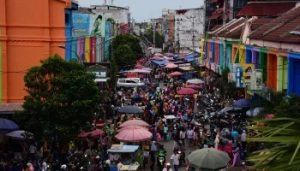Emerging markets in Asia face greater challenges than developed economies in achieving a just and inclusive low-carbon transition, according to a new report by the Asia Investor Group on Climate Change (AIGCC).
The study highlights that countries, such as India and Indonesia, must simultaneously expand electricity access, cut carbon emissions, and upgrade energy systems ‒ all while managing complex institutional and social transitions.
Lengthy institutional preparation times add to the difficulty, with policymakers and investors urged to account for social transition risks in their investment frameworks.
“Planning for a just transition must start early,” AIGCC CEO Rebecca Mikula-Wright said as quoted in a statement on Thursday, October 2, 2025. “If the focus was once on job losses in fossil fuel industries, it now extends to fast-growing sectors. This includes issues around informal work, fair wages, community consultation and consent, migration, and social protection.”
The research assessed four key Asian markets ‒ Japan, India, Indonesia, and Malaysia. While India and Indonesia are beginning to integrate social dimensions into climate adaptation, mechanisms linking adaptation with job creation and equality remain limited.
Mikula-Wright stressed the importance of institutional investors in accelerating progress, noting that although policymakers have shown advances, catalytic capital is crucial for effectiveness. “Clearer, more coordinated policies will also help mobilize capital flows,” she added.
The report also found geographic mismatches between existing worker skills and the demands of green jobs, coupled with low wage quality that dampens labor interest. Current strategies tend to emphasize the quantity of green jobs rather than their quality, AIGCC said.
